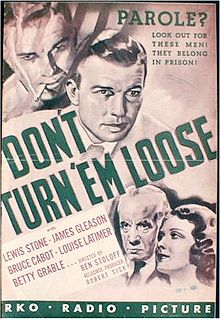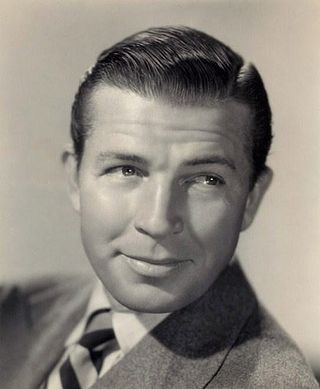
Bruce Cabot was an American film actor, best remembered as Jack Driscoll in King Kong (1933) and for his roles in films such as The Last of the Mohicans (1936), Fritz Lang's Fury (1936), and the Western Dodge City (1939). He was also known as one of "Wayne's Regulars", appearing in a number of John Wayne films beginning with Angel and the Badman (1947), and concluding with Big Jake (1971).

The Painted Desert is a 1931 American pre-Code Western film released by Pathé Exchange. Produced by E. B. Derr, it was directed by Howard Higgin, who also co-wrote the screenplay with Tom Buckingham. The picture stars low-budget Western stars William Boyd and Helen Twelvetrees, and most notably features an unshaven young Clark Gable in his talking film debut. The film was shot mostly on location in Arizona.

Beau Ideal is a 1931 American pre-Code adventure film directed by Herbert Brenon and released by RKO Radio Pictures. The film was based on the 1927 adventure novel Beau Ideal by P. C. Wren, the third novel in a series of five novels based around the same characters. Brenon had directed the first in the series, Beau Geste, which was a very successful silent film in 1926. The screenplay was adapted from Wren's novel by Paul Schofield, who had also written the screenplay for the 1926 Beau Geste, with contributions from Elizabeth Meehan and Marie Halvey.

The Royal Bed is a 1931 American pre-Code satirical comedy film produced by William LeBaron and distributed through RKO. The film was directed by and starred Lowell Sherman, along with Mary Astor and Anthony Bushell. The screenplay was adapted by J. Walter Ruben based on the 1928 play by Robert E. Sherwood titled The Queen's Husband. It would be one of a handful of RKO pictures which was produced in both English and French language versions.

The Common Law is a 1931 American pre-Code romantic drama film directed by Paul L. Stein, produced by Charles R. Rogers and starring Constance Bennett and Joel McCrea. Based on Robert W. Chambers' 1911 novel of the same name, the film was the third film adaptation of the book, and the first during the sound-film era. It was received well both at the box office and by film critics, becoming one of RKO's most financially successful films of the year.

Beyond Victory is a 1931 American pre-Code war film starring Bill Boyd, James Gleason, Lew Cody, and ZaSu Pitts. While John Robertson received directing credit, Edward H. Griffith supposedly took extensive re-takes after production ended and the film was deemed not audience ready. Two actresses with major roles in the original version were completely cut from the final release, Helen Twelvetrees and June Collyer. The original screenplay was written by Horace Jackson and James Gleason. While the film might not have made a profit at the box office, it was well received by critics.

The Crime Doctor is a 1934 American crime drama directed by John Robertson from a screenplay by Jane Murfin, adapted from the novel The Big Bow Mystery by Israel Zangwill. The film stars Otto Kruger, Karen Morley, and Nils Asther. RKO Radio Pictures produced and distributed the film which was released on April 27, 1934.

The Farmer in the Dell is a 1936 American comedy film directed by Ben Holmes from a screenplay by Sam Mintz and John Grey, adapted from Phil Stong's 1935 novel, which was similarly titled, Farmer in the Dell. The film was premiered by RKO Radio Pictures in New York City on March 6, 1936, and released widely later that month on March 27. It stars Fred Stone, Jean Parker, and Esther Dale.
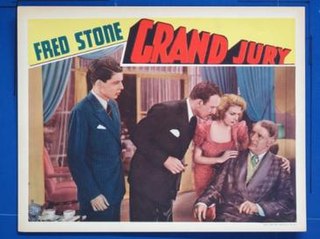
Grand Jury is a 1936 American crime drama film directed by Albert S. Rogell from a screenplay by Joseph A. Fields and Philip G. Epstein, based on a story by James Edward Grant and Thomas Lennon. Produced and distributed by RKO Radio Pictures, it premiered in New York City on July 31, 1936, and was released nationwide the following week on August 7. The film stars Fred Stone, Louise Latimer and Owen Davis, Jr.
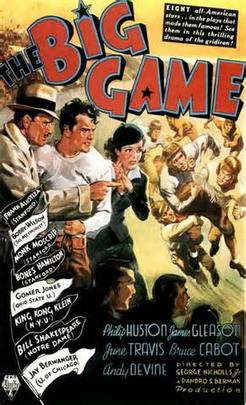
The Big Game is a 1936 American sports drama film directed by George Nicholls, Jr. and produced by RKO Radio Pictures, which released the film on October 9, 1936. The screenplay was written by Irwin Shaw, adapted from the 1936 novel of the same name by Francis Wallace. The film stars Philip Huston, James Gleason, June Travis, Bruce Cabot and Andy Devine. Huston (1908–1980) was a respected New York stage actor, who also had prominent roles in a number of motion pictures and, later, acted in television productions, as well.
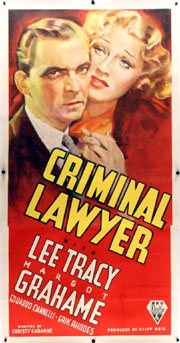
Criminal Lawyer is a 1937 American drama film directed by Christy Cabanne from a screenplay by G. V. Atwater and Thomas Lennon, based on a story by Louis Stevens. The film stars Lee Tracy, Margot Grahame and Eduardo Ciannelli. RKO produced the film and premiered it on January 26, 1937, in New York City, with a national release a few days later on January 29. It was the second time Stevens' story had been used for a film, the first being 1932's State's Attorney, starring John Barrymore and Helen Twelvetrees, directed by George Archainbaud, and also produced and released by RKO.

Don't Tell the Wife is a 1937 American comedy film directed by Christy Cabanne using a screenplay by Nat Perrin adapted from the play, Once Over Lightly, written by George Holland. The film stars Guy Kibbee, Una Merkel, and Lynne Overman, with Lucille Ball, William Demarest, and Academy Award winner Hattie McDaniel in supporting roles. Produced by RKO Radio Pictures, it premiered in New York City on February 18, 1937, and was released nationwide on March 5.

China Passage is a 1937 American mystery film directed by Edward Killy from a screenplay by Edmund L. Hartmann and J. Robert Bren, based on a story by Taylor Caven. RKO Radio Pictures produced the film, which stars Constance Worth, Vinton Haworth, Leslie Fenton and Gordon Jones. Haworth was injured in an automobile accident in January 1937, delaying the film's released until March 12, 1937.

Danger Patrol is a 1937 American drama film directed by Lew Landers from a screenplay by Sy Bartlett based on a story by Helen Vreeland and Hilda Vincent. Produced and distributed by RKO Radio Pictures, it was released on December 3, 1937, and stars Sally Eilers, John Beal, and Harry Carey.

Crime Ring is a 1938 American crime drama film directed by Leslie Goodwins from a screenplay by J. Robert Bren and Gladys Atwater, based on a story by Reginald Taviner. The film stars Allan Lane and Frances Mercer, and was produced and distributed by RKO Radio Pictures, released on July 8, 1938.
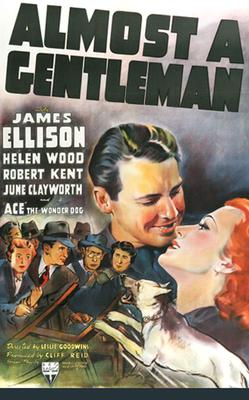
Almost a Gentleman is a 1939 American drama film directed by Leslie Goodwins from a screenplay by David Silverstein and Jo Pagano, based on the story by Harold Shumate. The film stars James Ellison, Helen Wood and Robert Kent. It was released by RKO Radio Pictures on March 31, 1939.

Around the World is a 1943 American musical comedy film produced and directed by Allan Dwan from an original screenplay by Ralph Spence. RKO Radio Pictures premiered the film at the Globe Theater in New York on November 24, 1943. The film has a large cast, and stars Kay Kyser and his band, Mischa Auer, Joan Davis, Marcy McGuire, Wally Brown, and Alan Carney. The picture follows Kyser and his troupe on a tour of U.S. military bases around the world. The film is full of one-liners, sight-gags, double-talk, running gags, and the kind of antic humor that made Kyser's band—actually a large, versatile orchestra—famous.
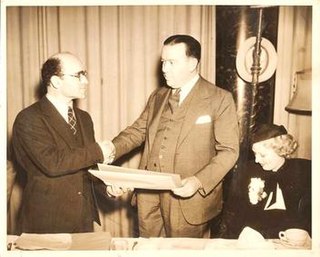
Cliff Reid, also known as George Clifford Reid, was an American film producer and film production studio founder during the 1930s and 1940s. In addition he also directed film shorts, and was the assistant director on several feature films.

Lee Marcus, also known as Lee S. Marcus, was an American film producer of the 1930s and 1940s. During his fifteen-year career he produced over 85 films, most of them between 1934 and 1941 while he was at RKO Studios. Prior to his production career, Marcus worked for FBO and then RKO as a sales executive, reaching the level of vice president in both organizations. At RKO, he was head of production of the studio's b-films during the late 1930s and the beginning of the 1940s. He was also responsible for producing what many consider to be the first film noir, 1940's Stranger on the Third Floor.

Behind the Mike is a 1937 American comedy film directed by Sidney Salkow, which stars William Gargan, Judith Barrett, Don Wilson, and Sterling Holloway. The screenplay was written by Barry Trivers from a story by Thomas Ahearn and Walton Butterfield. The film was released on September 26, 1937.
